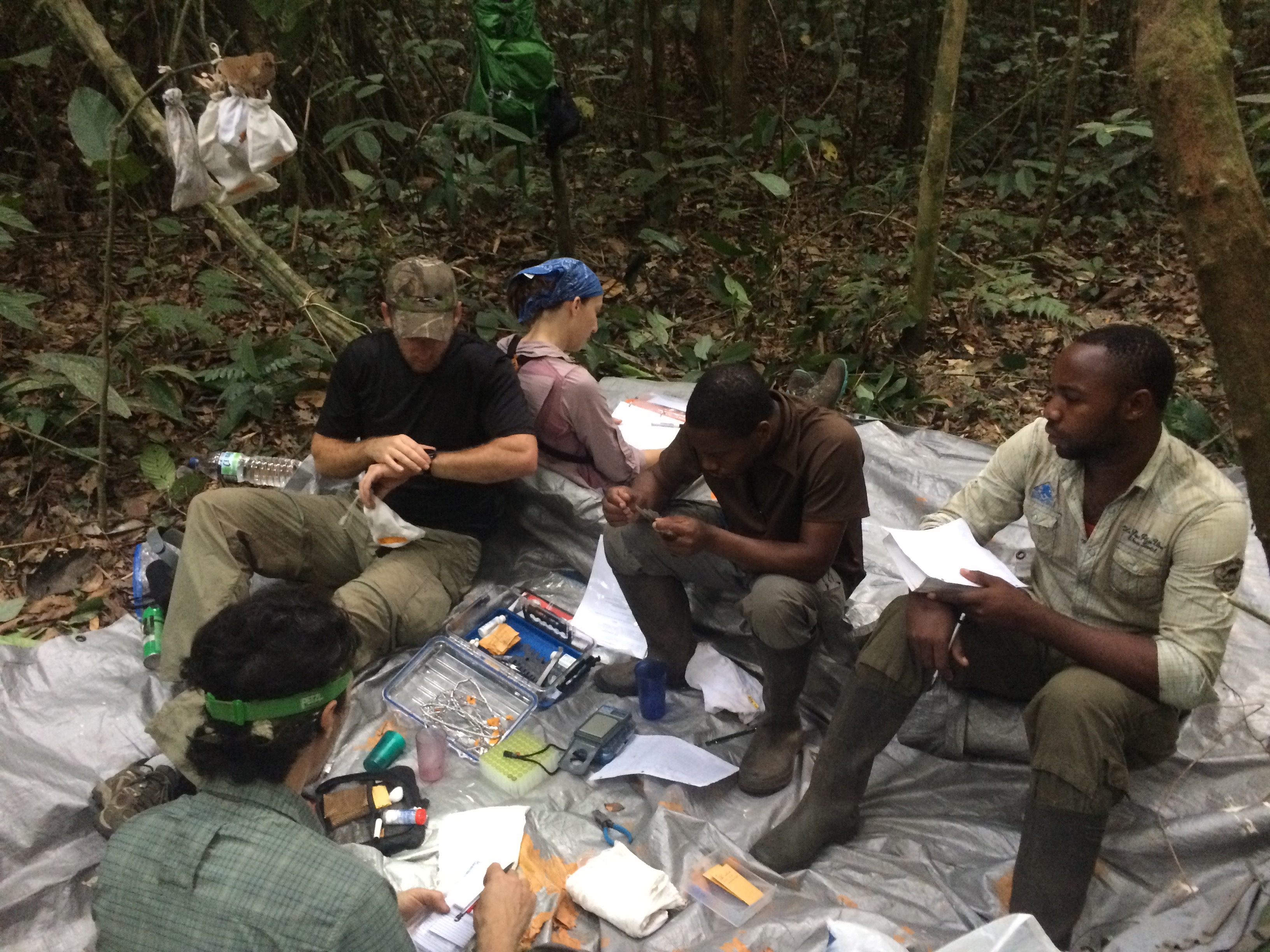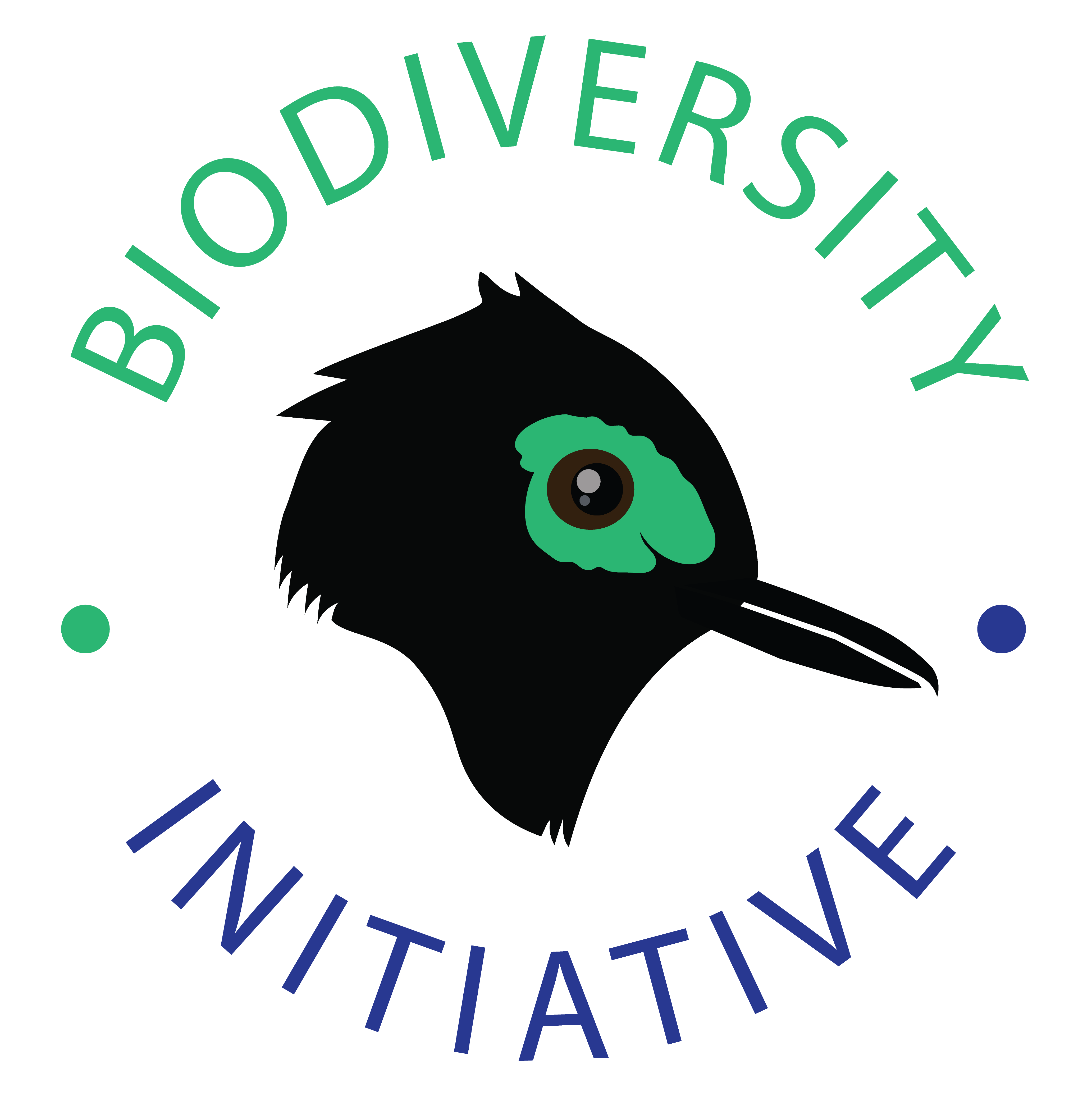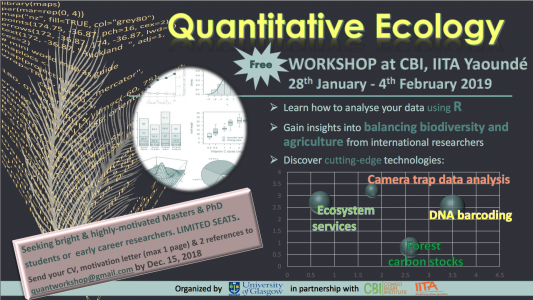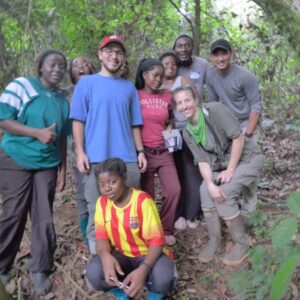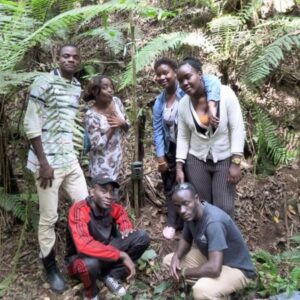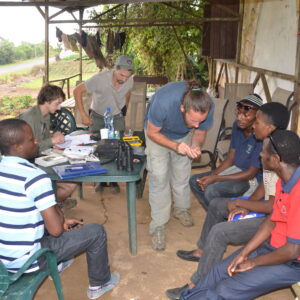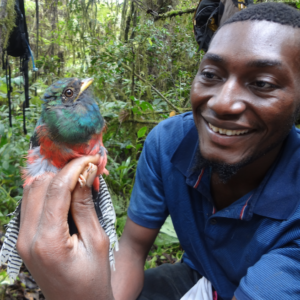Biodiversity conservation cannot be accomplished through research alone; successful conservation must also include educating and training the next generation of conservation advocates.
Biodiversity Initiative is dedicated to several training and outreach programs. So far, we have run four workshops serving over 100 local students. These programs have already helped a local Equatoguinean university student evaluate the impact of road construction on local wildlife and Protected Areas personnel to conduct conservation activities in mainland forests.
Recent educational programs include:
1.) Wildlife techniques and conservation courses
CAMEROON
Quantitative Ecology Workshop
Additional information:
- The 7-day workshop was hosted at IITA Nkolbisson.
- The workshop comprised of 3 days of introductory R for statistics followed by 4 modules (1 day each) on pressing ecological/conservation issues.
Modules:
Sustainable Agriculture & ecosystem services: quantitatively understanding the pest-eating services provided to farmers by wild birds and bats. Instructor Dr. Bea Maas, University of Vienna
Biodiversity & climate change: Forest or agroforestry biodiversity and biomass estimation/carbon sequestration, quantitative analyses. Instructor Dr. Ruksan Bose, CBI
Bushmeat/hunting crisis: Data analysis from camera traps. Focus: chimps, elephants & gorillas. Dr. Kristin Brzeski, Michigan Tech. University
Molecular biology: DNA bar-coding (including practical lab work on DNA extraction) Dr.Luke Powell, Durham University and Glasgow University
EQUATORIAL GUINEA
In January 2016, BI completed their third wildlife workshop for students from the National University of Equatorial Guinea on the island of Bioko. This 3-day course covers wildlife techniques, and discusses Equatorial Guinea biogeography, conservation priorities, and passive wildlife monitoring. BI members look forward to continuing this workshop in the coming years while also expanding to mainland Equatorial Guinea. In 2017, BI taught a two-week long wildlife techniques and conservation course to Equatoguinean biologists and students at the newly constructed American University of Central Africa, located in Oyalá, the yet-to-be-dedicated capital city.
2.) Increasing conservation action in Equatorial Guinea’s Protected Areas
There are 9 mainland Protected Areas (PAs) in Equatorial Guinea that cover 15.4% of the country’s land, but there is limited law enforcement to protect against illegal bushmeat hunting and logging. A powerful method to reduce illegal use of PAs is to increase the presence of wildlife professionals to conduct passive protection activities, such as mammal or bird surveys.
Equatorial Guinea wildlife officials have the desire to conduct these types of surveys but they are lacking technical expertise. That is where BI can help. We have been working with Equatorial Guinea’s Protected Areas Program (INDEFOR-AP) to provide technicians with skill-sets necessary to implement wildlife conservation action.
BI researchers have worked closely with several INDEFOR-AP officials since 2014, which has proven to be a successful strategy. BI expanded this work in 2017 through a wildlife conservation course and by helping fund INDEFOR-AP officials’ passive protection activities.
